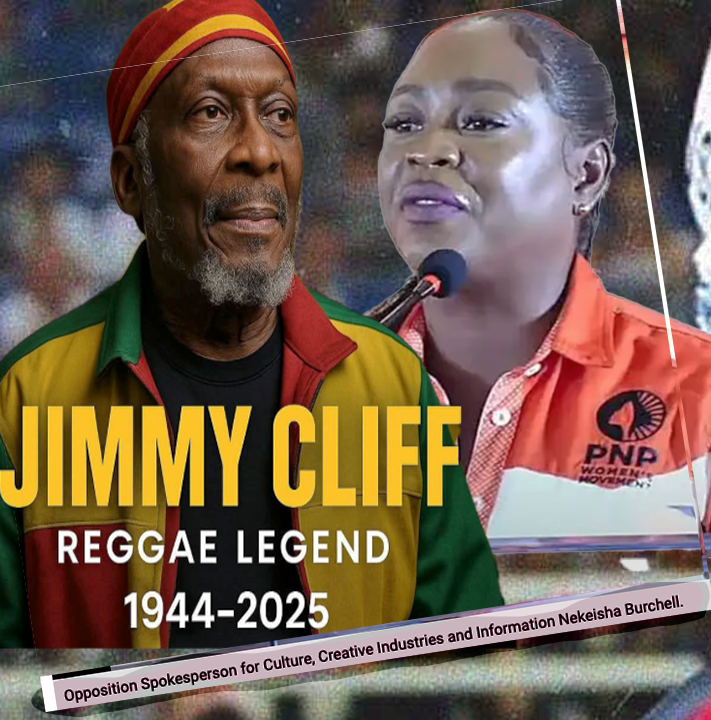The title of producing the world’s fastest man, Usain Bolt, two of the greatest singers in history—the late, great Bob Marley, renowned as the king of reggae, and the popular veteran reggae singer and actor Jimmy Cliff—holds little weight when the majority of Jamaicans, who are Black, remain under the systemic dominance of White, Chinese, Indian, and Arab minorities. Despite Jamaica’s overwhelming Black majority—approximately 90% of the population—the country continues to struggle with a colonial mentality that perpetuates the subjugation of its Black citizens, keeping them at the bottom of the socio-economic hierarchy. In contrast, Black Americans, who make up about 14% of the U.S. population, face their own unique challenges within a predominantly White society.
The comparison between Black Americans and Black Jamaicans is complex, as both groups navigate different historical, cultural, and systemic contexts. While Black Americans fight against systemic racism in a minority context, Black Jamaicans grapple with the paradox of being a majority population yet still marginalized by entrenched power structures that favor minority elites. This dynamic highlights the lingering effects of colonialism, which continue to shape Jamaica’s socio-economic landscape.
For Jamaica to achieve true independence and equality, it is imperative for Black Jamaicans to unite, challenge these systemic inequalities, and reclaim their nation’s resources for the betterment of their community. Addressing these deep-rooted issues requires dismantling the colonial mentality, empowering the Black majority, and fostering a society where economic and political power reflects the demographic reality. Only through collective action and a commitment to systemic change can Jamaica move toward a future where its Black majority thrives.
This conversation also underscores the need for solidarity among the global Black diaspora, as both Black Americans and Black Jamaicans confront shared struggles against systemic oppression, albeit in different forms. By acknowledging these complexities, both communities can work toward mutual understanding and collaboration in the fight for racial justice and equality.
-
The Nigeria, Jamaica, and Barbados Paradox: Regional Superpowers or Proxy Enforcers?
Nigeria and Jamaica are frequently hailed as the cultural and economic titans of their regions. However, as we close out 2025, a jarring disconnect has emerged. While both nations project the image of regional “superpowers,” their internal realities—characterized by stagnant wages, mass migration, and controversial foreign interventions—suggest they are increasingly operating as proxies for Western…
-
Montego Bay Ascendant: Swallowtail Tower Tops Out, Cementing City’s Role as Jamaica’s New Development Leader
Montego Bay, long established as the Caribbean’s premier tourism capital, is now boldly stepping forward to claim its title as a leader in integrated, high-end residential development. The city’s skyline has been irreversibly changed with the Official Topping-Out Ceremony of the Swallowtail Tower, the first of the four luxury residential towers at The Pinnacle. Reaching its final height of 28 stories, the tower now stands as the tallest building in Jamaica. Notably, even during its construction, the structure and its installed systems demonstrated absolute resilience against the fury of Hurricane Melissa, standing tall and virtually unscathed against the Category 5 winds. This monumental achievement not only solidifies Montego Bay’s structural progress but also signals its intent to become a primary hub for luxury living and diversified economic activity, challenging Kingston’s traditional dominance in non-tourism-centric development.
-
Jimmy Cliff: Reggae Trailblazer and Global Icon Passes Away at 81
Reggae legend Jimmy Cliff—the golden voice behind “The Harder They Come” and “You Can Get It If You Really Want”—has died at age 81. His passing marks the end of an era for Jamaican music and global culture, leaving behind a legacy that shaped reggae’s rise and influenced generations of artists worldwide.
-
A Beacon of Truth’: PNP Pays Solemn Tribute to Late Reggae Icon Jimmy Cliff
Kingston, Jamaica — The People’s National Party (PNP) has issued a heartfelt statement joining the nation and the international arts community in grieving the loss of reggae pioneer Jimmy Cliff. The 81-year-old music legend passed away on Monday; his family confirmed the cause of death was pneumonia following a seizure.
-
Fire Ravages Usain Bolt’s Tracks and Records in St. James, Halting Vital Meal Support for Hurricane Survivors
A pre-dawn fire tore through Usain Bolt’s Tracks and Records in St. James, starting on the first floor and spreading quickly through the building. No one was inside the restaurant at the time, but the damage has deeply impacted a crucial community kitchen that had been feeding hurricane survivors daily.
-
The true hypocrisy lies in forgiving the colonizers who have never atoned
The criticism is misplaced. The individual in question has completed his sentence and paid his debt. The true hypocrisy lies in forgiving the colonizers—who have never atoned or paid reparations—while supporting a colonial framework that your Prime Minister profitably upholds as a puppet leader.” The criticism is misplaced. The individual Isat Buchanan has completed his…





come and join me at moomoo!Sign up via my referral link now and claim 8.1% APY and up to 15 free stocks!
account when you invite 3 or more friends to sign
One Comment